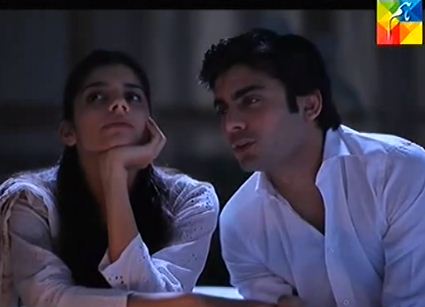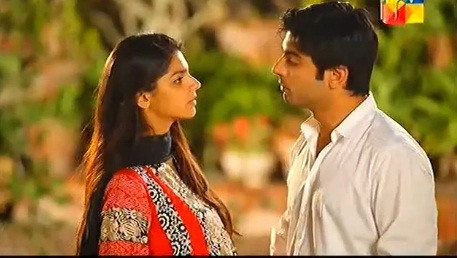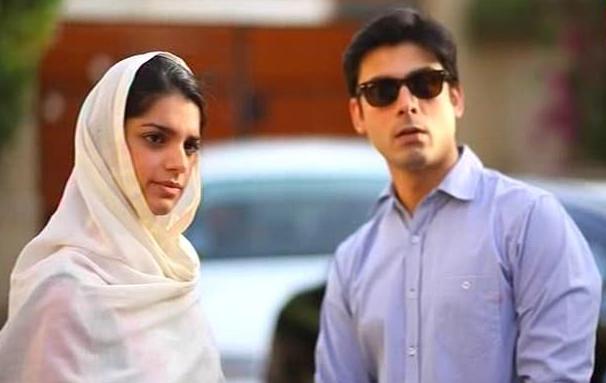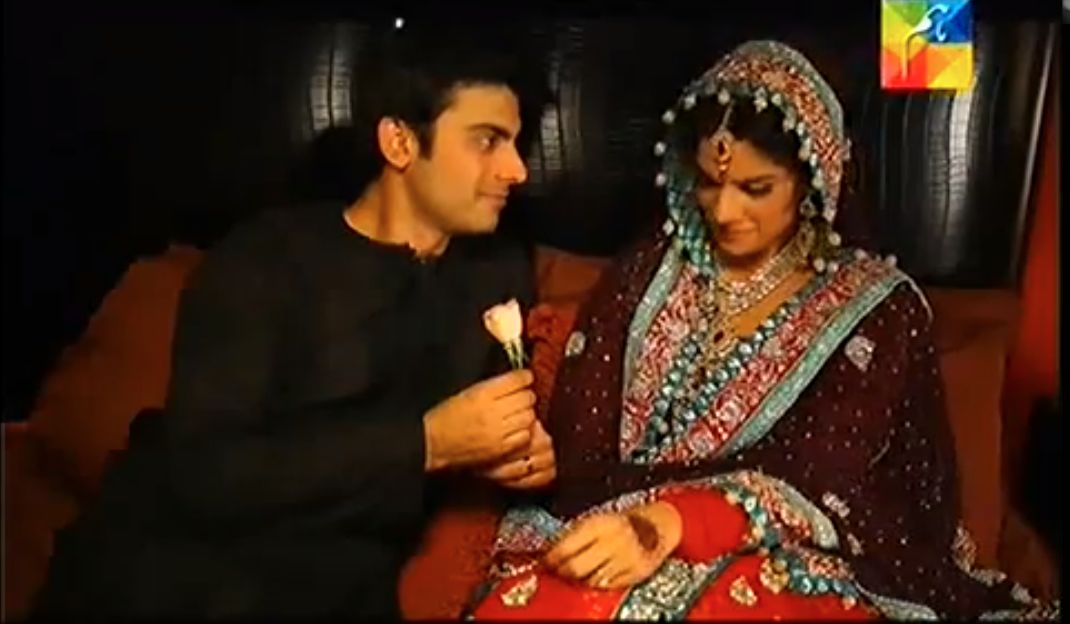The point being, the deeper you go in a problem, the more complex it gets and the simpler life is, the better it is. The phrase reminded me of beautiful episodes of Dhoop Kinare and Ankahi, both created by the legendary playwright and scriptwriter Haseena Moin.The generation growing up in the eighties watched these compelling episodes with their mothers and aunts and cousins on black-and-white TV screens in small Indian towns after rearranging their TV antennae.We watched young Pakistani men and women who were just like us, with lives that mirrored ours except that they articulated their thoughts, their angst, their emotions in beautiful and yet simple Urdu. Moin had deep, philosophical insights into life, into human character and an almost miraculous felicity with words.
Zindagi Gulzar Hai is a worthy offspring of the Moin era of story-telling and its characters say things that linger for days. Things like, “zindagi naam hai namumkinaat ka, ittefaqat ka, vaqyaat ka aur unpar hamara koi ikhtiyaar nahin hota.” (Life is all about impossibilities, co-incidences and happenings that we never seem to have any control over). It can be safely called a sub-continental version of Pride And Prejudice and delicately addresses deep-seated gender issues that trail behind every man and every woman, regardless of who they are and where they come from.
Zaroon, the male protagonist for instance has deep abhorrence for women like his mother who speak their mind, have hectic social lives and ‘ignore’ their families while he himself leads a life of complete independence. The good thing is that his hypocrisy is always picked on by the women in his life. From being a rabid chauvinist, he softens to acknowledge the “strength of character” in Kashaf Murtaza, a straight-talking, highly intelligent, unromantic and complex young woman who he loathed during his university days but comes to love. He sheds his ego many times to get close to her but does tell her at some point, “I think of a man as a natural head of the family and in that position he is entitled to a certain protocol” while Kashaf tells him that marriage is not an equation between a ‘boss’ and a ‘sub-ordinate’ but a partnership of equals.
Kashaf herself is a fascinating human study. Growing up in an all woman house-hold, with an acute sense of abandonment and anger, she compensates for her lacks by being an academic over-achiever and by ensuring that her mother and sisters are well taken care of. She is cynical about love, does not trust men or happiness and is unforgiving of even small slights because the wound of being abandoned by her father smarts constantly. These are two individuals entrenched in their contrasting social, personal and emotional contexts and their interaction is fascinating to watch. Their story could unfold in any Indian milieu because it too deals with issues we grapple with everyday. Education for women, the mindless craving for sons, the dilemmas women face when they are educated enough to stand on their feet but are still unsure about love. The weakest links are the women in Zaroon’s family. His mother and sister are caricatures of working women who for some unknown reason feel compelled to rebel against the most ideal situations for the heck of it. Lead actor Fawad Afzal Khan is already a heart-throb in Pakistan and is rumoured to have been picked for lead roles opposite Kareena Kapoor and Sonam Kapoor. His voice and dialogue delivery are a treat for the ears especially because in Indian television, few actors know how to put life in a line and how to use pauses and subtle gestures to animate a character. He is not just eye-candy and his intuitive understanding of Zaroon’s character graph shows that he is a thinking actor.
Sanam Saeed as Kashaf reminds me of Kavita Chaudhri’s Kalyani Singh in the unforgettable Doordarshan classic Udaan because of the way she uses pain as a fuel to craft a better life for her family. Her steady gaze, dignity, deep voice and a strikingly unusual face stand out in the clutter of weepy, dramatic heroines on Indian television. The chemistry between the protagonists reminds me of Na Bole Tum Na Maine Kuch Kaha on Colors where the lead actors were allowed atleast for some time to engage in normal conversations in situations that felt unscripted.
The ensemble cast is extraordinary with Javed Shaikh bringing back memories of Ankahi where he was young, strapping and heart-breakingly handsome. Sameena Peerzada as a single mother of three daughters is brilliant and gets to speak great lines like, “betiyan bojh nahin hoti..banaa di jaati hai.” This story and the disturbing tales of abuse and freedom in another Pakistani serial Kitni Girhein Baki Hain show us just how fearless Pakistani story-tellers are when it comes to talking about gender conflicts.
**
The story feels cohesive because it is based on a novel by Umera Ahmad and has limited episodes. Much like Farmaan, a Doordarshan serial directed by Lekh Tandon in early nineties that was based on Rafia Amin’s Urdu book Alampanah. What good TV in any era recognises is that story-telling and detailing are the key to success and not plot twists,jarring back-ground music, and overdone costumes or sets. Zindagi Gulzar Hai and hopefully other stories from Pakistan will give us a break from multiple marriage tracks, amnesia, pedestrian writing and bad actors. Most importantly they will show us just how insignificant politics is when good human stories from two halves of a whole reach out and embrace each other.
Reema Moudgil works for The New Indian Express, Bangalore, is the author of Perfect Eight, the editor of Chicken Soup for the Soul-Indian Women, an artist, a former RJ and a mother. She dreams of a cottage of her own that opens to a garden and where she can write more books, paint, listen to music and just be silent with her cats.










 with
with
Very nicely put..i concur…quality proves itself in due course of time..its time Indian telly learns few lessons from ‘them’… I miss meaningful Indian serials like Star Bestsellers n Saans..
It reminds me of one of my most imp prsn…
lv ds series. <3
ZGH is yet another serial apart from Dhoop Kinare, Ankahi, Tanhaiyaan and the more recent NBTNMKK (select episodes) that I can watch again & again. I remember during the NBT days in 2013 Swati Ghosh had suggested the serial along with Humsafar and Dur-e-shawar. And what a treat it was. I belive that th eoriginal novel had a 9 year separation which I guess Salma Siddique did a good job by cutting it to few days, or it would have not had the effect. The romantic lines too were missing in the story and added impromptu by the director et al. The subtle humour is brilliant, I can never forget the dialogue after Zaroon and Kasaf’s engament, “Chand dekha”, and Kashaf goes “gol hai” or when he proposes to her at Abrar’s house, or after their marriage. Well, all i all I love the serial and can equate it with Dhoop Kinari and being the best serial!!
[…] Source: http://unboxedwriters.com/2014/07/zindagi-gulzar-hai-from-pakistan-with-love/#.VfLDvMi6bj0 […]